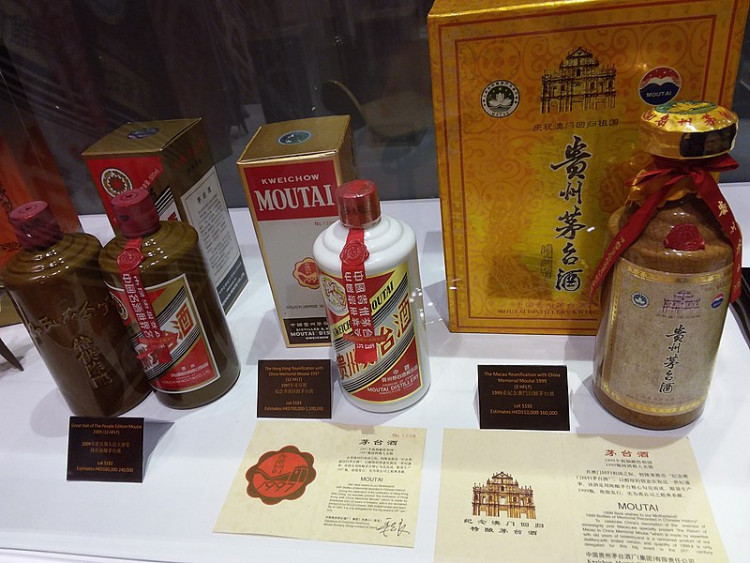The basic spirit is baijiu, a Chinese liquor from fermented sorghum or other grains kept in brick or mud pits until ready and now, a particular company's version, China's Kweichow Moutai, simply known as Moutai, is the world's most valuable liquor company with the ethanol-like drink commanding as much as $400 a bottle.
Moutai has long been associated with not only China's leaders but also with the mainland's affluent.
Commenting on why many people can't stand its taste, Jenny Miao, a 26-year-old market researcher in Shanghai, said it tastes "very much like ethanol" adding that when she would toast clients at dinners with a Moutai, she will have to drink water to wash away its taste.
Usually served in tiny glasses with recommended amounts limited to only a third of the glass, shots of Moutai are downed to show respect for someone during a toast.
Before drinking, the Chinese say "gan bei" meaning "dry cup."
Baijiu non-lovers say the taste reminds them of a cheap paint stripper or kerosene.
However, baijiu's fans praise its complexity and distinct flavor varieties to a combination of strength and light, with a hint of soy sauce and rice aroma.
Others say Moutai carries the taste of cheese, dark chocolate, mushrooms, nuts and sesame paste.
Just like any valuable company, the value of a Moutai goes beyond its price.
The clear spirit's maker, Kweichow Moutai, makes sure supplies stay limited.
Not only is the supply limited, but Moutai's famous variety, the Moutai Flying Fairy takes at least five years to make.
The limited supply and the amount of time it takes to make some of its varieties account for a formula that sends the price of a Moutai very high, an enticing investment option.
Though the company advises retailers to charge 1,499 yuan, or $213 for a half-liter bottle with 53% alcohol, some stores in Shanghai increase their price to 2,800 yuan or close to $400, sometimes more.
Qin Xiaoluo, who runs a liquor store in the central city of Changsha, attributed the success of Kweichow Moutai to the fact that as salaries rose, the Chinese "can afford better drinks" though they "drink less."
Qin pointed out that most of his Moutai customers are wealthy entrepreneurs who also know that even if they don't drink the Moutai, its price will go up in value.
Xue Yuhu, a Shanghai-based analyst with Founder Securities Co., likened the value of a Moutai to a designer handbag whose quality is enhanced by a big price tag.
Likewise, downing a pricey drink like the Moutai is related to the Chinese concept of "face" equated socially with reputation or dignity.
Xue added that a "Moutai is the best gift if you are planning to treat your higher-ups or impress your future in-laws."
Shares in Shanghai-listed Kweichow Moutai is up at 97% this year with a market value of about $210 billion.






